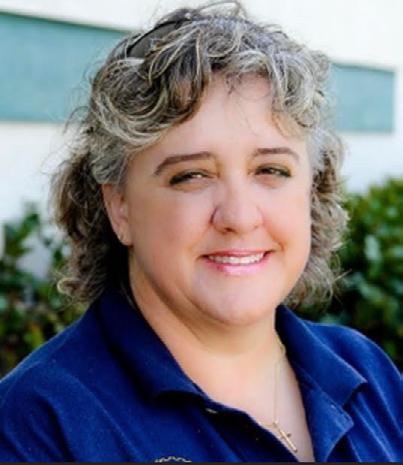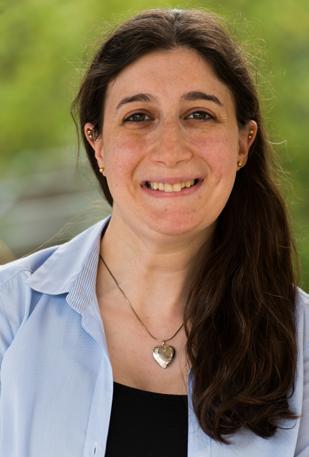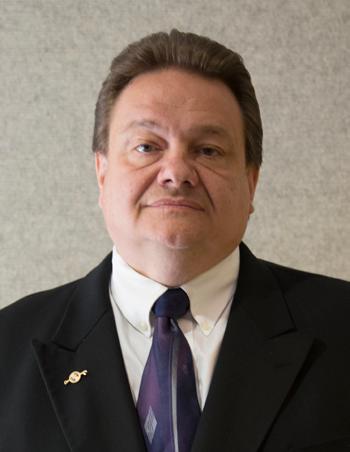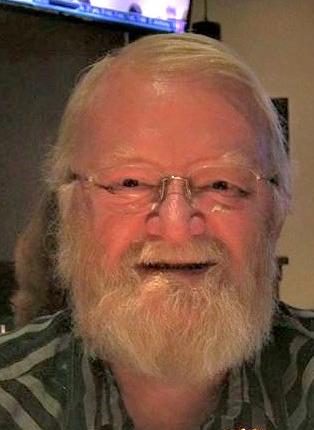
4 minute read
NACAT Helps with ADAS Support and Resources
by NACATNews
Pam Oakes, Subject Matter Expert (SME) in automotive app engineering, business intelligence, and technical training at autoINENG.io, utilized the courses she presented at the 2023 NACAT Conference & Expo in Houston, Texas to share information on available and upcoming ADAS resources for both educators and institutions.
Oakes serves on the the advisory committee of the National Council of Autonomous Technologies (NCAT) — land-based/ADAS representation — an arm of the National Science Foundation's Advanced Technological Education (NSF/ATE). The group's goal is to get ADAS educational tools into the classroom. The National Council of Autonomous Technologies (NCAT) will begin to provide collegiate automotive instructors (following up with high school instructors within the year) material that covers ADAS, equipment (practice and standard) options, curriculum, peer-to-peer group, and whatever else may be needed for the autonomy instruction. This is a federally funded, no fee, sponsored program.
NACAT is pleased to have three of our board members, Sara Heller, Thomas Millard, and Louie Longhi on the NCAT's ADAS advisory committee. The committee will meet in early October as they work to finalize activities for what is shaping up to be an outstanding 2024 as the new initiative identifies institutions with established ADAS programs and develops a base for those who need curriculum guidance and funding support. Future years will see NCAT act as a support system for programs as they provide ADAS and related curriculum for mathematics, topology, alignment strategies, and many other vital topics. High Schools will be included in the program design though inter collegiate-to-secondary school networks.



The importance of proper ADAS education is clear: The National Highway Safety Traffic Administration (NHSTA) stated that 615,000 traffic accidents could have been prevented with vehicle-to-vehicle (V2V) communication protocol. The ADAS initiative will serve as a keystone in efforts to create future professionals who are experts at calibrating/recalibrating ADAS-embedded safety standards for V2V and vehicle-to-infrastructure (V2x) accident avoidance.
What is already available on the National Council for Automonous Technologies website? A great many resources. They are categorized as educator, student, visual media, and grant resources. Descriptions, with links, for a few of the resources follow.
Course Curriculum: A diverse series of courses and curricula are available for download. A cursory glance will reveal topics such as Introduction to Hybrid and Electric Vehicle Engineering, Advanced Engines in Hybrid Electric Vehicles (HEVs), Automated, Connected and Intelligent Vehicles, and much more
Professional Development Funding: NCAT offers $1,000 reimbursement to cover travel costs and registration for applicants wanting to attend professional development. Applicants are reviewed frequently to verify eligibility and selection. Notification will be sent out immediately once the process is complete. There are a limited number of participants that will be selected for this opportunity.
Eligible Participants for Professional Development Funding include:
• Secondary educators
• Faculty at community/technical colleges or universities
• Faculty supporting technician education
• Students enrolled in 2-year technical programs
• Robotics Education and Outreach Forum Participants
Videos and Webinars: A curation of videos and webinars which spans many topics.
Lending Library: NCAT offers educators and industry professionals the opportunity to lend out equipment for utilization to enhance their programs and student experience.
Mentor-Connect: A program working to enable the nation's two-year colleges to improve and expand technician education. Founded in 2012, "Mentor-Connect’s peer mentoring facilitates knowledge transfer from the more experienced to the less experienced. Peer mentoring also stimulates the engagement of STEM educators, broadens participation in the ATE Program, and develops a next generation of leadership to ensure the advancement of technician education to support our nation’s economy."
Mentor-Connect offers three types of no-cost mentoring to community colleges seeking to improve technician and related STEM education through projects funded by the National Science Foundation’s Advanced Technological Education Program (NSF ATE). Descriptions of the three types of mentoring, "New to ATE", "Second Chance", and "Moving Up", deadlines for application, and a description of the application process can be found here
The program also provides a pathway for those who have been successful grantees in the NSF ATE Program to become mentors. New Mentors complete a Mentor Fellows internship which includes shadowing a current Mentor through a grant development and submission cycle.
The resources available through the National Council for Autonomous Technology's website is growing and NACAT is pleased to be actively involved in the efforts to bring ADAS resources and assistance to our fellow educators. The combined efforts of high schools, community colleges, industry, and all stakeholders will help create more effective and efficient training that will help to increase roadway safety.





